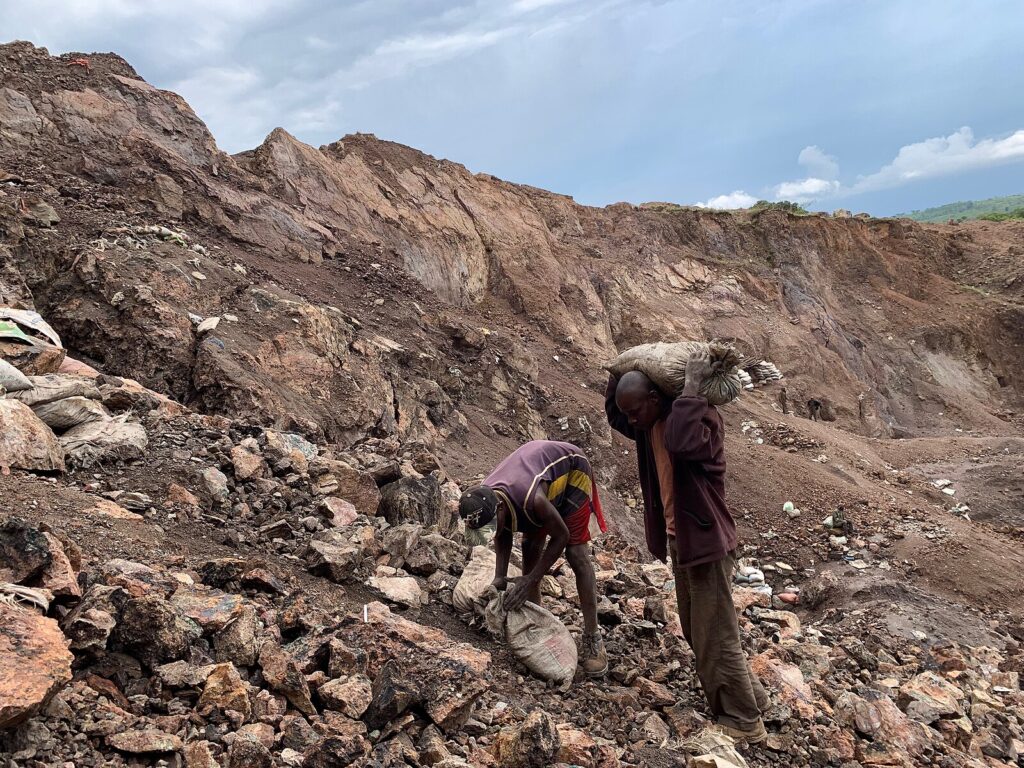Politics
NEW: Resource-Rich African Nation Offers Minerals Deal To Trump Admin In Pivot Away From China

Felix Tshisekedi, the president of the Democratic Republic of Congo, offered the United States and Europe a stake in his country’s vast mineral resources, according to a report from the New York Times. The latest development has sent the Chinese government scrambling to retain control, as the Congo’s mineral sector is currently dominated by Beijing.
Tshisekedi is turning to the west for aid after rebel groups backed by neighboring Rwanda seized swaths of his country’s territory earlier this year. During a high-level meeting of the Human Rights Council in Geneva on Monday, the prime minister of the Democratic Republic of Congo told the body that at least 7,000 people have been killed in the fighting, which has also displaced an additional 450,000 people in the nation’s east.
Since January, the M23 rebel group, which is backed by Rwanda according to allegations from the DRC government and western powers, has seized the cities of Goma and Bukavu, and valuable mineral deposits. Rwanda has denied the allegations of involvement in the conflict.
According to a report from the New York Times, Tshisekedi’s government is comparing the invasion to Russia’s invasion of Ukraine during recent meetings with representatives from U.S. and European governments. The president is reportedly calculating that investments in the DRC’s security and international pressure on Rwanda will enhance his nation’s stability and lead to a possible minerals deal.
The Democratic Republic of Congo is considered to be among the richest nations in the world in terms of raw natural resources. The nation provides much of the world’s supply of coltan, which is used to power smartphones and computers. It also contains nearly half of the globe’s cobalt reserves, a key component of electric vehicle batteries.

Republic of the Congo President Felix Tshisekedi signs Secretary Pompeo’s guestbook before their meeting at the U.S. Department of State in Washington, D.C., on April 3, 2019
Photo: Michael Gross/U.S. State Department
China has long dominated the Congo’s minerals sector, which has helped the Chinese Communist Party to build a particularly sizable advantage in electric vehicle battery production. Currently, China is responsible for processing roughly 73 percent of the world’s cobalt and has attempted to expand its mining efforts in African nations, particularly in the Congo, where the CCP controls more than two thirds of the nation’s cobalt reserves.
China also refines 68 percent of the world’s nickel, 40 percent of copper and 59 percent of lithium, according to an analysis from Virtual Capitalist. With continued and expanding control of resources in the Congo and other resource-rich African nations, China is gaining massive control over supplies of minerals used in smartphones, electric vehicles and solar power.
The European Union, on the other hand, has inked a number of resource deals with Rwanda in recent years, including a deal that would provide the Central African nation with about $935 million in return for access to minerals such as tin, tungsten and gold.
As the conflict with Rwanda-backed rebels rages, Tshisekedi’s government is taking a harder stance against Europe’s deals with Rwanda, which they have referred to as an “absolute scandal” that makes the European Union “complicit in the theft and looting of Congo.” Last week, the European Parliament called for the deal to be suspended until Rwanda puts a halt to the conflict and stops “exporting minerals mined from M23-controlled areas.”
In turn, the DRC government is turning to the Trump Administration for aid and is reportedly willing to offer a generous minerals deal in exchange for pressure on Rwanda. On Thursday, the United States announced sanctions on an M23 spokesman and a Rwandan government minister accused of having links to the violence in Eastern Congo.

Workers in a Chinese-controlled Cobalt mine work in squalid conditions that amount to “modern day slavery,” according to human rights groups.
Photo: The International Institute for Environment and Development
In announcing the sanctions, the State Department warned of a wider regional war as the rebel group advances towards the Congolese city of Butembo. If advances are not halted through either military or diplomatic means, the Congolese capital of Kinshasa, one of the most populous cities in Africa, could be threatened.
Tshisekedi told the New York Times that the Trump Administration has already shown interest in a deal that could “ensure a stream of strategic minerals directly from Congo,” to the United States. He also touted investments in a number of infrastructure projects including a mega dam that, if completed, would be the world’s largest hydroelectric plant.
Infrastructure investment forms a major part of the Chinese Communist Party’s foreign policy, as China will frequently build infrastructure in developing nations under its Belt and Road initiative. The countries then provide the Chinese government with access to minerals, ports and collaborate on Chinese foreign policy goals.
As of this report, the United States has offered condemnations of the Rwandan government but has yet to announce a formal strategy. On January 30, President Trump called the fighting in eastern Congo “a very serious problem” but declined to say more.
Foreign policy analysts told the New York Times that the Trump Administration’s sanctions amount to a symbolic “first step” towards halting the offensive and securing a deal. If the U.S. opts to take more extensive action, the administration could pressure the World Bank to cut Rwanda’s funding, much of which is provided by the U.S. government. Rwanda’s “lucrative” role as a supplier of troops to United Nations peacekeeping missions could also be placed under review.
On Friday, the U.N. Security Council unanimously adopted a draft resolution that called for the withdrawal of Rwandan troops in Congo and an end to the M23 offensive. “The only language [Rwandan President] Kagame understands is force,” Tshisekedi said. “Diplomacy is not in his DNA.”
RELATED: Panama Caves, Moves Away From China After Pressure From Trump Administration

